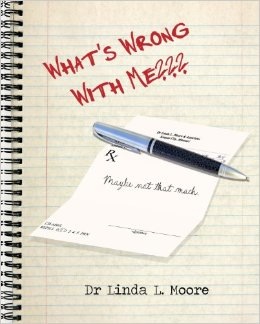Beware of Caregiver Breakdown: Three Warning Signs and Three Soothing Actions
My stomach hurt most of the time. As I dashed around the house, getting ready to go see Mom in the Memory Care Unit, I frequently bumped into furniture. I found myself drifting away during meetings and unable to concentrate when I sat at the computer to write. And even though I had wonderful, supportive friends, I often felt an aching loneliness. Later, I learned these were normal symptoms of caregiver’s fatigue.
I asked my friend Linda Moore, psychologist, community leader and author of the newly released book, “What’s Wrong with Me?” to tell me more about recognizing and managing such exhaustion. Here are some of her insights.
Three Areas Where Stress Screeches You to a Halt
Physical
“Your body is the early warning system,” Linda says. “But most people try to ignore the on-going tiredness, low energy, muscle spasms, unfamiliar aches and pains, and GI issues.”
Emotional
Often, after I’d spent hours solving problems around Mom’s care, I had a heavy feeling of disconnection and a dull anger. Nothing mattered and I felt sad, rootless and lonely. But I kept going. Caregivers tend to push past such feelings.
Behavioral
“Poor concentration is one common sign of stress,” Linda says. When friends say, “You’re just not acting like yourself,” it’s a cue to slow down and drink a cup of soothing tea, read a short magazine article, or phone a friend. Other stress symptoms include procrastination and isolating yourself.
Fight Breakdown with the MEE Plan
“Meditate, even if it’s just for a minute,” Linda advises.
Sit quietly, count to four as you breathe in and count to six as you breathe out. Watch your thoughts wiggle around. One minute of meditation calms you; five minutes energizes you and 20 minutes of daily meditation can really center you and give you a greater sense of well-being.
Exercise
“Everybody knows it works and no one wants to do it,” Linda says. Even when you’re so tuckered out that your fingernails feel heavy, movement matters. Five minutes just walking around the house or prancing around to “Dancing Queen” can ratchet up your energy. Fifteen minutes of walking can lift your mood. Even a jog up stairs or unloading the dishwasher can shift your energy.
Eat healthy.
Is a banana really as delicious as a dark chocolate truffle? Many would say no. But most would agree, the banana is better for you. Even if you often eat on the run, choose fruits and vegetables to snack on. Throw in salads, whole grains, soups and nuts. And don’t forget the truffle: be sure you indulge every so often in a comfort food you really adore.
Lastly, Linda advises, “Don’t give away your personal power: ask for help when appropriate and learn to say no.” #
Dr. Linda Moore is a psychologist, author, speaker and consultant in Kansas City. She specializes in the psychology of women, stress management and leadership. 

Q 4 U
I bump into furniture when I’m stressed. What are some of your stress signals?
*****

Reblogged this on Change is Never Ending.
Reblogged this on FTD is my Niche (apparently!) and commented:
Good advice……
I believe it is important for children to understand Alzheimer’s disease so they can still interact lovingly with family members who have this disease. I am a 17 year old college junior, Alzheimer’s researcher, and Alzheimer’s advocate.I grew up as a caregiver to my great grandmother who had Alzheimer’s disease. After her death, I founded a nonprofit organization that has distributed over 24,000 puzzles to Alzheimer’s facilities. Recently, the book I coauthored explaining Alzheimer’s disease to children became available on Amazon.My hope was to provide some helpful coping mechanisms to the many children dealing with Alzheimer’s disease among their family members. 50 percent of the profits from this book will go to Alzheimer’s causes. I think this book could help a lot of children and families.”Why Did Grandma Put Her Underwear in Refrigerator? A Book Explaining Alzheimer’s Disease to Children.” http://amzn.to/13FYYxh
The more stressed I get, the faster I try to run. For instance, at Christmas time I used to run myself ragged. The more I cleaned, the more I saw to clean. By the time the holiday came, I was exhausted. Now, I pace myself and if some of it doesn’t get done, it just doesn’t get done.
Reblogged this on Frontotemporal Degeneration moved in with us and commented:
Excellent advice, if only I could learn to catch myself before it reaches the point of utter exhaustion!
Deborah, I’m so grateful you’re writing this blog. I pass it along. You are writing the words that someone needs to hear right now.
Trust that even if that person doesn’t reply, you have reached someone who needed you. Thank you. Janet
Thanks for these encouraging words. I love sharing this information and I so appreciate help spreading the word.
Wonderful article, thank You !!